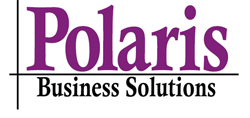Blog
- Home Microsoft Dynamics SL
- Five Reasons to Migrate to Cloud-based Accounting Software
Five Reasons to Migrate to Cloud-based Accounting Software
Whether it’s a hosted approach (where you run your traditional accounting software on a remote, web-accessible server) or an SaaS solution (here, an outside vendor sells you access to their software, which accumulates, stores, manages, allows you to analyze your financial data) – there are, pun intended, a host of reasons to take a hard look at the cloud. And lest you assume we’re biased, I’ll just point out Polaris is an integrator that has long experience with, and a deep appreciation of, both traditional, on-premises accounting software and the new breed of web-based solutions. So, it’s with a legitimate measure of objectivity that we can enumerate our top five reasons to migrate your accounting function to the cloud.
1) Updates and upgrades are the vendor’s responsibility, not yours — Since the SaaS vendor is in charge of developing, upgrading, running, and troubleshooting their own software — again, you are just buying access to the software on a monthly, quarterly, or annual basis – you needn’t worry about whether you are running the most current version, have the most recent upgrades, are protected by the latest security patches, or have the internal expertise and bandwidth to troubleshoot a problem. All of that “IT stuff” is in the SaaS provider’s court.
2) Speaking of security – As robust as your company’s firewall may be, it’s simply not as formidable as the multiple layers of security, infrastructure, and protocols in place at SaaS providers. Sure, the news is rife with high-publicity data breaches. But, trust us: those are far fewer than the thousands of unreported breaches that occur daily within independent businesses attempting to run their own security and onsite servers. Oh, and SaaS providers are equally adept at and resourced to run continuous back-ups of your financial data (I’m literally talking data centers being backed up by data centers). Can you honestly say the same is true of your operation?
3) Remote access – With SaaS accounting, not only is your financial data in a remote location free of localized dangers like flood, fire, overheating, mismanagement, power-spikes, etc. — but multiple team members can access your real-time financial data from anywhere at any time, including on their smart phones, laptops, and tablets. If this raised concerns about too many people having access, that’s readily handled by assigning different layers of access to different job titles.
4) Real time data – Since your financial data is coalesced and accessed in real-time, you always have an up-to-the-minute view of the financial aspects (and analytics!) of your business. Additionally, your analytics and financial reporting functions – for regulatory compliance, tax filing, payroll, banking, operational insights, and more — are also informed by real-time data. And gone are the days of worrying and fussing about with obsolete or ‘revs’ of your most common or critical reports.
5) All kinds of flexibility – Whether it’s being agnostic to what web browser (Chrome, IE, Firefox) or hardware (PC, Mac, desktop, mobile phone) you use… Whether it’s having a range of pricing, support-levels, and time commitments to choose from… Or whether it’s affording you the option to cherry pick the software modules and functions that are right for your unique business, cloud-based accounting platforms just offer more flexibility when compared to traditional software packages that you buy all-at-once, install and deploy on-site, and are thereafter responsible for running and maintaining. In other words, because running the software is your vendor’s business, you can concentrate on running yours.
Hope this has proved to be helpful. Please reach out for more information and insights on migrating to cloud-based software: Your first consultation is absolutely free and without obligation.
